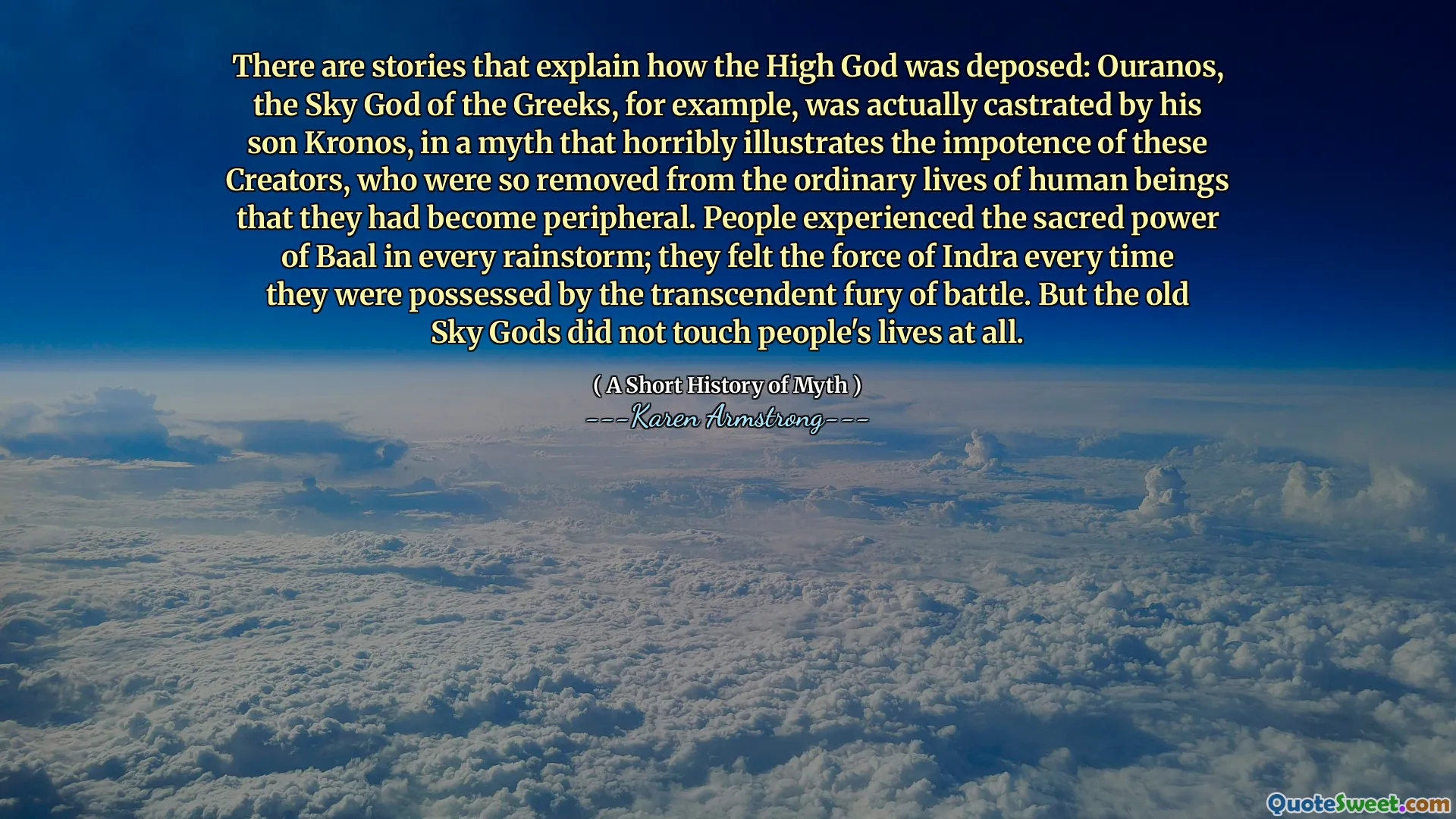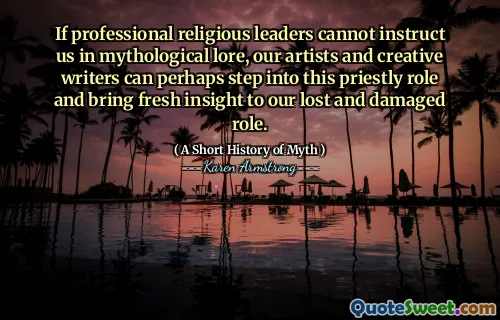
There are stories that explain how the High God was deposed: Ouranos, the Sky God of the Greeks, for example, was actually castrated by his son Kronos, in a myth that horribly illustrates the impotence of these Creators, who were so removed from the ordinary lives of human beings that they had become peripheral. People experienced the sacred power of Baal in every rainstorm; they felt the force of Indra every time they were possessed by the transcendent fury of battle. But the old Sky Gods did not touch people's lives at all.
This excerpt vividly highlights the shifting perception of divine power and its relevance to human life. Historically, many civilizations worshipped powerful deities tied to natural elements—Baal with rain, Indra with storms, or Ouranos with the sky—embodying forces that, while formidable, often seemed distant from the everyday experiences of ordinary people. The myth of Ouranos and Kronos reveals a brutal story of divine conflict and deconstruction, symbolizing perhaps the failure or obsolescence of distant, removed gods who no longer resonated with human struggles. This idea suggests that gods who are detached from daily life tend to fade, whereas gods associated with immediate, tangible phenomena—like rain or thunderstorms—retain their significance because they directly affect survival and wellbeing. It's a reflection on how humans relate to the divine: not just as distant creators or judges, but as entities integral to their natural environment and emotional experiences. The passage also hints at a transition from mythologies grounded in vivid, experiential power to a more abstract notion of the divine—one that is felt through natural phenomena or intense emotions rather than through rigid, distant worship. This evolution signifies humanity’s desire for a connection that transcends mere ritual, seeking gods that are alive in their world and influence their lives meaningfully, in stark contrast to the ancient Sky Gods’ perceived impotence and irrelevance.







